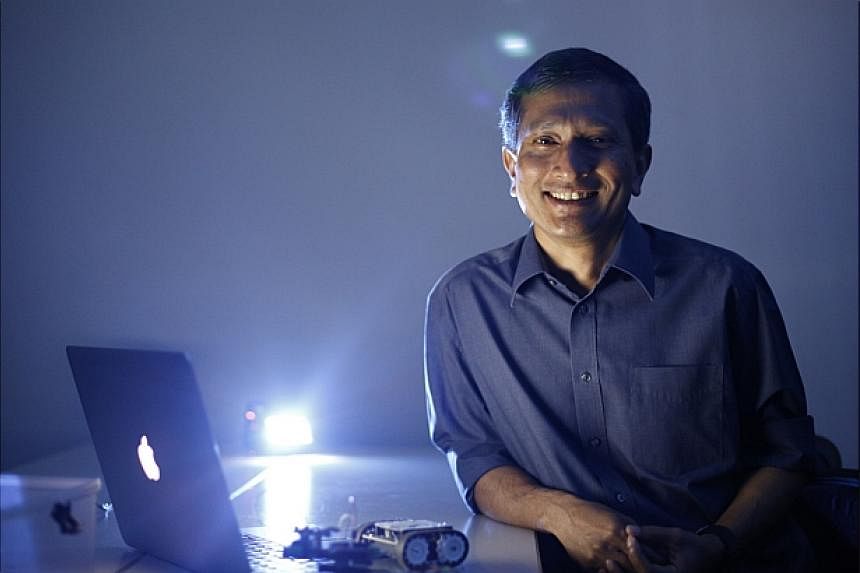SINGAPORE- When there was a bout of flash floods in 2011, social media was filled with comments on where it was flooding but hardly anyone posted when the floods were over, said Minister for the Environment and Water Resources Vivian Balakrishnan.
"Everyone would tweet...it's flooded on Orchard Road, it's flooded on Bukit Timah Road, nobody would tweet when the flood cleared," he said. "And usually the flood would clear 15 minutes or 30 minutes." He was speaking at a tech conference called Geekcamp.sg on Oct 18.
To combat this, his team used technology to send out real-time information to social media users. Water sensors in the drains were connected to a network that allowed them to push out real-time data to social media. The public would be instantly informed on how flooded a place was.
"So if a place is flooded, I'm not covering up, you know exactly which minute it flooded, but equally important, you know when the flood cleared," he said.
When the public is overwhelmed with social media information that skews a situation, government agencies can respond with real-time facts aided by modern technology to demonstrate accountability, noted Dr Balakrishnan.
"The answer is not censorship, but to reply with (factual) data," he said.
The National Environment Agency is also facilitating such transparency with its app that allows citizens to report anything from littering to mosquito breeding. Unresolved cases would appear on the app and resolved ones would be removed, allowing the public to judge for themselves how efficient the agency was, he said.
Dr Balakrishnan also appeared to be at home with 500 fellow tech enthusiasts, even exchanging knowledge on programmming and hardware hacks with some of them at the sidelines.
He admitted that he learnt to code when hewas younger because he wanted to "earn extra lives and money" in computer games. But this turned into a life-long hobby- these days, he still spends late nights coding and experimenting with hardware.
"In a world where machines can replace human work, we need more tech builders, innovators and designers to stay ahead," he said. With the cost of computing and connectivity falling sharply, and a multitude of resources available online, anyone interested in technology can learn to build it," he said.
The one-day conference also showcased tech products made by homegrown talents such as an underwater robot built by National University of Singapore undergraduates.
Said software engineer Laurence Putra, 24 : "Places like Geekcamp are a great way to find peer mentors to sharpen your tech skills. It's about sharing knowledge with others- you can't solve all the problems on your own."


